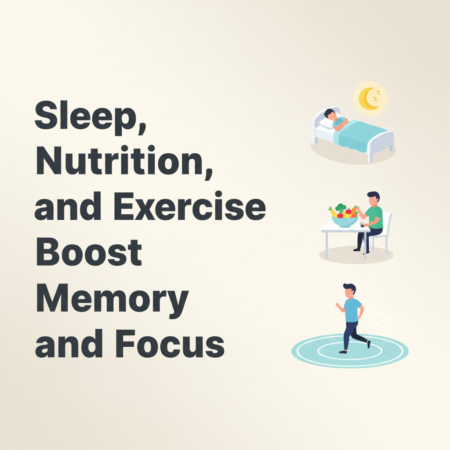Introduction
Mock exams are your secret weapon for mastering tests and exams. They’re like practice runs before the real deal, giving you a taste of the format, pace, and pressure. Let’s explore why mock exams are crucial and how they can boost your performance on test day!
Benefits of Mock Exams
- Exam Readiness:
Mock exams familiarize you with the format and structure of real tests, reducing anxiety and boosting confidence on exam day. Through simulated conditions, you’ll become more comfortable with the test environment, leading to better performance. - Time Management:
Practice with mock exams helps refine time management skills, ensuring you can complete each section within allocated time limits. By practicing pacing and prioritizing tasks, you’ll learn to optimize your time effectively during the actual exam. - Identify Strengths & Weaknesses:
Mock exams pinpoint areas of proficiency and areas needing improvement, allowing you to tailor study efforts effectively. By analyzing your performance in mock tests, you can focus on strengthening weaker areas and reinforcing your strengths for better overall preparation.
Strategies for Effective Mock Exams
- Simulate Real Testing Environments:
Create a quiet, dedicated space similar to an exam hall to minimize distractions. Use a timer and follow exam rules strictly to replicate the actual testing conditions, helping to enhance focus and concentration. - Leverage Official Practice Tests:
Access official practice tests and past exam papers provided by educational institutions or exam boards. These resources closely resemble the format and content of the real exams, providing valuable practice opportunities to familiarize yourself with the test format and types of questions. - Review Past Exams:
Analyze past exam papers to understand the structure of questions, common topics, and the level of difficulty. This insight can help you tailor your study plan and focus on areas that are frequently tested. - Utilize Online Platforms:
Explore online platforms and resources that offer mock exams and practice questions. These platforms often provide detailed explanations for answers, allowing you to understand concepts better and learn from mistakes. - Time Management Practice:
Practice time management skills during mock exams by allocating specific time limits for each section or question. This helps improve pacing and ensures you complete the exam within the allotted time frame. - Seek Feedback:
If possible, seek feedback from teachers, tutors, or peers on your mock exam performance. Their insights can offer valuable perspectives and highlight areas for improvement that you may have overlooked. - Repeat and Iterate:
Regularly incorporate mock exams into your study routine, repeating the process to track progress and identify ongoing areas for improvement. Iterative practice builds confidence and familiarity with the exam format over time.
Overcoming Test Anxiety
- Understanding the Role of Mock Exams:
Mock exams serve as a powerful tool for easing test anxiety by providing a low-stakes environment to practice and familiarize oneself with the testing process. They help alleviate fear of the unknown by simulating real testing conditions and allowing students to experience exam situations beforehand. - Techniques for Managing Stress:
Explore various stress management techniques to help stay calm during mock exams. Deep breathing exercises, positive visualization, and mindfulness techniques can help reduce anxiety levels and promote a sense of relaxation and focus. Additionally, maintaining a healthy lifestyle with adequate sleep, exercise, and nutrition can also contribute to overall well-being and stress reduction. - Building Confidence Through Practice:
Engaging in mock exams regularly builds confidence through repeated exposure to testing scenarios. As students become more familiar with the exam format, types of questions, and time constraints, they gain confidence in their abilities to perform well under pressure. This confidence boost can significantly reduce test anxiety and enhance overall performance on the actual exam day.
By incorporating these strategies and utilizing mock exams as part of your exam preparation routine, you can effectively overcome test anxiety and approach exams with greater confidence and composure.
Mock Exams Across Different Subjects
- Customized Exams:
Tailor mock exams to match each subject’s requirements, focusing on specific skills and knowledge areas. - Subject-Specific Challenges:
Address unique challenges in each discipline, such as problem-solving in math, critical thinking in social sciences, and analysis in literature. - Comprehensive Preparation:
Mock exams help students prepare comprehensively by simulating the types of questions and formats they will encounter in actual exams. - Feedback and Improvement:
Use mock exams to provide valuable feedback to students, highlighting areas for improvement and guiding further study. - Confidence Building:
Regular practice with mock exams builds students’ confidence, reducing test anxiety and enhancing performance on the actual exam day. - Time Management Skills:
Mock exams offer opportunities for students to practice time management strategies, ensuring they can complete exams within allocated time limits. - Subject Mastery:
By focusing on subject-specific mock exams, students can gauge their understanding of key concepts and identify areas where additional study is needed. - Adaptability:
Mock exams allow students to adapt their study strategies based on their performance, refining their approach to better tackle exam challenges.
Leveraging Mock Exam Results
- Interpreting Scores:
Understand mock exam scores and feedback to identify strengths and weaknesses. - Informed Study Strategies:
Use insights from mock exams to develop targeted study plans, focusing on areas that need improvement. - Implementing Revision Plans:
Create structured revision schedules based on mock exam performance, allocating more time to challenging topics. - Tracking Progress:
Continuously monitor progress by comparing mock exam scores over time, adjusting study strategies as needed. - Improving Performance:
Utilize mock exam results to refine study techniques and enhance performance in future exams. - Building Confidence:
Seeing improvement in mock exam scores boosts confidence and motivation, leading to better outcomes in actual exams. - Goal Setting:
Set achievable goals based on mock exam performance, striving for continuous improvement and academic success. - Reflecting on Feedback:
Take time to reflect on feedback provided with mock exam results, incorporating suggestions for improvement into study routines.
Mock Exams in College Admissions
- College Entrance Test Prep:
Explore the significance of mock exams in gearing up for college admission assessments such as the SAT and ACT. - Admission Readiness:
Mock exams offer students a glimpse into the structure and content of standardized tests, fostering readiness for the actual assessment. - Tailored Improvement:
Pinpoint areas of weakness through mock exams to devise targeted study plans that address specific academic needs. - Customized Study Strategies:
Utilize mock exam results to craft personalized study strategies, optimizing preparation efforts for optimal performance. - Anxiety Management:
Regular mock testing aids in alleviating test anxiety, instilling confidence and composure during the official exam. - Application Strengthening:
Successful performance in mock exams bolsters college applications, demonstrating academic competence to admissions boards. - Resource Accessibility:
Access a plethora of practice tests and study materials through mock exams, facilitating comprehensive preparation for college admission tests.
Conclusion
Mock exams are crucial for academic success, helping students assess readiness, identify areas for improvement, and boost confidence. By integrating mock testing into their study routines, students better prepare for real exams, enhancing performance and resilience. Embracing mock exams as part of preparation empowers students to achieve academic goals confidently.







